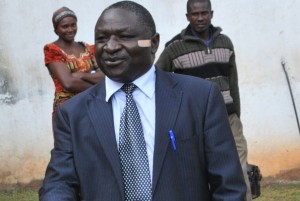Dar’aa | An-Na’ema
Shelters are filled with women and children suffering from shelling attacks at the hands of regime forces.
Dar’aa | Al-Mahata
The regime’s security forces break the locks on residents’ shops to punish them for striking.
Dar’aa | Bosra Ash-Shaam
http://www.youtube.com/watch?v=kz6vWH5WVM8&feature=youtu.be
These former detainees bear the marks of torture on their bodies after being held in the regime’s prisons.
Homs | Al-Khalidiye
This is the only way residents are able to remove the wounded and dead from the streets – this man is injured but had to be dragged in because snipers and gunfire fill the skies. It is painful to watch.
Casualty Report
37 confirmed casualties killed by the regime in Syria on Monday, 7 May 2012.
*Including three children, two women, five defected soldiers and two victims tortured to death.*
Dar’aa: 1
Deir Azzour: 7
Hama: 8
Homs: 13
Damascus & Damscus Suburbs: 4
Al-Hasaka: 2
Idleb: 2
24 confirmed casualties killed by the regime in Syria on Wednesday, 9 May 2012.
Latakia: 2
Homs: 12
Damascus & Damscus Suburbs: 3
Aleppo: 1
Idleb: 3
Hama: 2
Lebanon borders: 1
Videos and Statistics Courtesy of :
Syrian Network of Human Rights – Casualty Report – 9 May 2012
Syrian Network of Human Rights – Violations Report – 8 May 2012
Syrian Network of Human Rights – Casualty Report – 7 May 2012
Syrian Network of Human Rights – Violations Report – 5 May 2012

